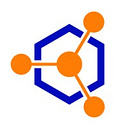Advanced Technologies in Clinical Bioanalysis: From LC-MS/MS to Immunoassays
Drug discovery and development is a complex and ever-evolving domain. Often, traditional technologies fall short in addressing complicated and time-extensive demands. From method development to clinical bioanalysis, integrated advanced bioanalytical technologies are critical in accelerating drug discovery and development. Outdated technologies and inadequate services may lead to significant losses and setbacks. Advanced bioanalytical solutions result in on-time delivery, enhanced accuracy, and reduced costs.
Bioanalytical laboratories focus on integrating services to support drug development from early discovery through clinical assessments. Using advanced technologies and stringent quality assurance, clinical bioanalysis services help make informed decisions across demanding drug development projects.
Bioanalytical laboratories delivering Clinical Bioanalysis Services have state-of-the-art platforms and technologies offering end-to-end bioanalytical solutions. Partnering with these advanced bioanalytical laboratories gives access to a broad range of techniques and complementary services with precision and expertise. The current article discusses several advanced technologies, such as LC-MS/MS systems and cytokine multiplex immunoassays in clinical bioanalysis.
Chromatographic and electrophoretic techniques
Clinical Bioanalysis Services include the development and validation of electrophoretic and chromatographic methods tailored to individual client requirements and regulatory needs. Laboratories today develop methods for release testing and characterizing multiple biologics, including lipids, peptides, biologics, antibodies, gene therapy products, monoclonal antibodies, nucleic acid-based products, glycoproteins, etc.
Additionally, advanced chromatographic techniques are ideal for analyzing small molecules and drug products in complex biological matrices. Besides, these chromatographic techniques are readily available as platforms to work on client samples.
Mass spectrometry
In the ever-evolving and dynamic field of bioanalysis, using only traditional technologies may leave gaps in the results. Hence, laboratories are using quantitative mass spectrometry along with liquid or gas chromatography. Considered one of the most effective approaches to detect chemicals and drugs across different industries, laboratories are using mass spectrometry for sensitive and precise detection of compounds for multiple industrial, pharmaceutical, and agrochemical products.
Quantitative LC-MS/MS systems are critical for sensitive and selective detection. However, all procedures developed are not equal. Reliable laboratory partners can develop advanced methods for precise and rapid identification and facilitate the timely delivery of results. Researchers with extensive experience in mass spectrometry testing can handle complex challenges faced during method development and validation in regulated environments. Mass spectrometry combined with gas or liquid chromatography can effectively assess multiple products, including small molecules, oligonucleotides, biotherapeutics, biomarkers, peptides, proteins, monoclonal antibodies, fusion antibodies, etc.
Must Read: The Future of ELISA Monoclonal Antibody in Clinical Research
Immunological Assays
Advanced immunological assays can provide insights into the functioning of the immune system. These immunological assays include testing, such as multiplex cytokine analysis, immunogenicity assessment, receptor occupancy, and immunophenotyping. Immunological assays are critical for supporting studies beyond IND-enabling testing. These assay systems support multiple modalities, including small molecules, recombinant proteins, and cell and gene therapies. Bioanalytical laboratories specialize in developing and validating immunological methods that are compliant with current regulatory guidelines.
The accumulated understanding of immunomodulatory mechanisms and the ability to alter them has resulted in significant breakthroughs in disease biology. These advances are evident in successful immunomodulatory interventions in oncology and other critical immune system pathologies. Advanced immunological assays support the discovery of immunomodulatory compounds needed for laboratory testing at every stage of drug discovery and development.
Cell-based assays
Today, simple cell-based screening assays have evolved into multicellular cell-based biochemical and functional assays in drug discovery and development. Currently, drug developers have unique cell-based assay systems for each stage of drug development. These assays help understand the complex pathways and networks within cellular processes. Researchers are combining innovative technologies with established platforms to develop assays that mimic disease states. Let us explore these assay systems mimicking cellular environments and improving translational research.
In vitro assays for disease-relevant cells provide early insights into drug compound behavior. Scientists now have access to tissues and blood from healthy individuals and disease-specific donors across therapeutic areas such as immunology, neuroscience, and oncology.
In cases when human cells are not available, induced pluripotent cells can generate multiple cells with different tissue types. Drug developers and bioanalytical laboratories have new reprogramming techniques and experience in stem cell culture and differentiation.
CRISPR technology can precisely develop the target of interest. This technology is ideal when creating cell-based assays for in vitro models. CRISPR is an accurate, fast, and cost-effective approach to conducting genetic manipulations to support assays for new disease targets and assess therapeutic efficacy.
Conclusion
Complex bioanalytical demands may hinder drug development projects. Precision and reliability are crucial at each stage of the drug development process. Advanced and state-of-the-art technologies are necessary to support bioanalytical needs to succeed in the biopharmaceutical domain.
Today, drug developers have understood the significance of precise and accurate bioanalysis in the development of biotechnology and pharmaceutical products. Hence, utilizing advanced technologies such as ligand binding assays, high-performance liquid chromatography, and liquid chromatography-mass spectrometry is essential to measure drug concentrations and determine potential contaminants or impurities, eventually accelerating drug discovery and development.
